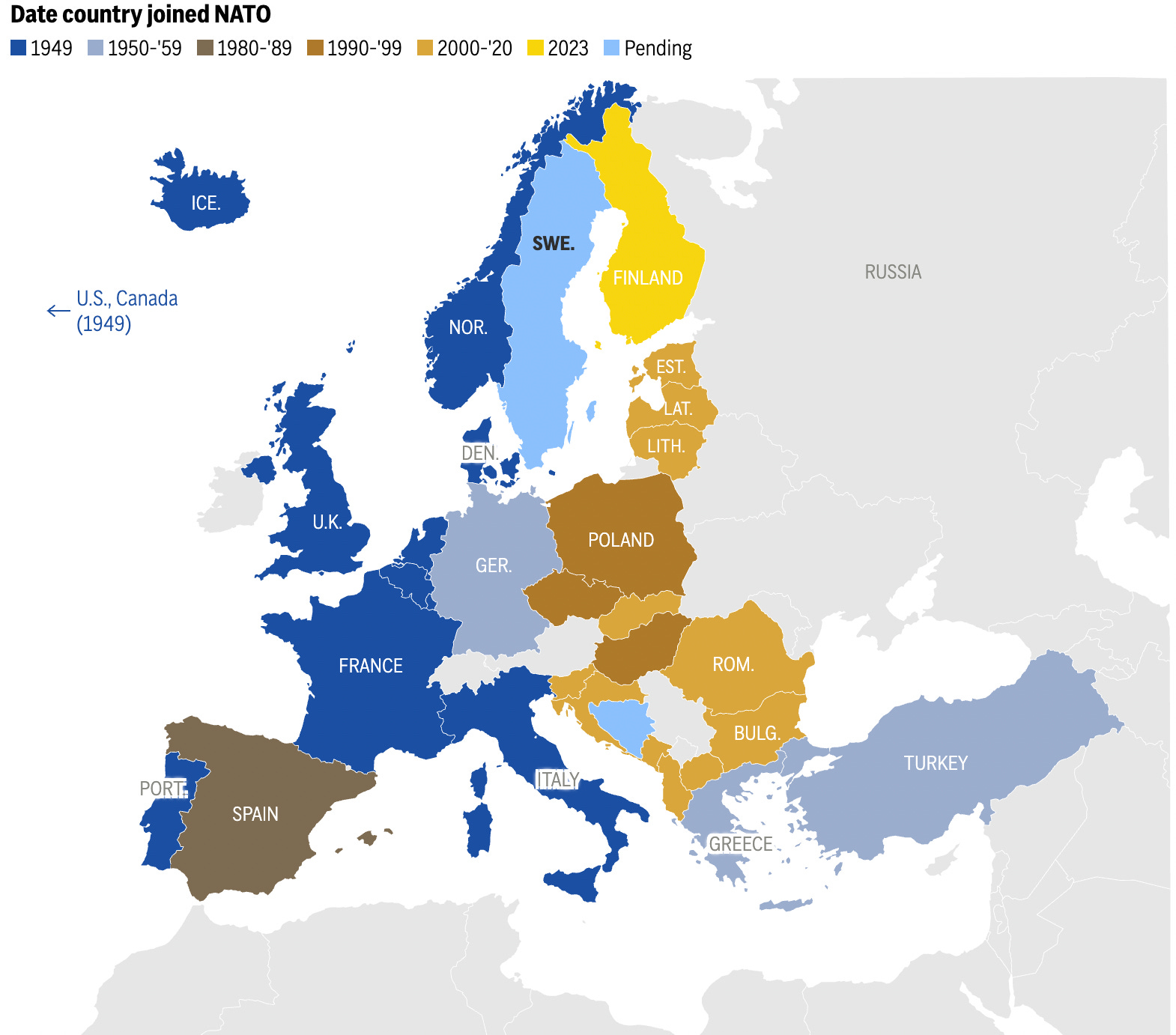ANKARA, Turkey – In a pivotal move, the Turkish Parliament has officially endorsed Sweden’s membership in NATO, signalling a significant shift in the geopolitical landscape. This decision, passed with a majority of 287 to 55 votes, marks the culmination of a prolonged diplomatic engagement and addresses a key concern within the NATO alliance regarding the expansion of its membership.
The Decision and Its Implications
Sweden’s accession protocol, ratified by Turkish lawmakers, demonstrates a notable change in Turkey’s stance. This move is particularly significant considering President Recep Tayyip Erdogan’s previous demands linking the ratification to Turkey’s aspirations to purchase fighter jets from the U.S. The ratification, expected to be published swiftly in the Official Gazette, ushers Sweden one step closer to full NATO membership, as stated by Swedish Prime Minister Ulf Kristersson on social media.
U.S. Reaction and the Broader NATO Alliance
The U.S. has welcomed this development, with National Security Advisor Jake Sullivan emphasizing that Sweden’s inclusion will strengthen the alliance. This reflects a broader consensus within NATO on the strategic benefits of expanding the alliance, especially in the context of heightened tensions following Russia’s invasion of Ukraine.
Turkey’s Concerns and Concessions from Sweden
Turkey’s delay in endorsing Sweden’s NATO bid for over a year stemmed from accusations of Sweden being lenient towards groups Ankara deems as security threats, including the outlawed Kurdistan Workers’ Party (PKK). Notably, Sweden’s recent amendments to anti-terrorism laws and actions against the PKK have been key to addressing these concerns. Additionally, Sweden’s commitment to deeper counterterrorism cooperation and support for Turkey’s EU membership bid played a critical role.
Erdogan’s Strategic Linkage and Bargaining
Erdogan’s linking of Sweden’s NATO membership to the U.S. Congress’ approval of a Turkish request for F-16 jets highlights a strategic bargaining approach. Despite no formal tie being made by the U.S. administration, Congress members have expressed that their support for the sale hinged on Turkey’s approval of Sweden’s NATO bid.
Finland’s NATO Membership and Hungary’s Stance
Finland’s earlier accession to NATO, becoming its 31st member, set a precedent for Sweden. However, Hungary’s delayed approval, alleging Swedish politicians of dishonesty about Hungary’s democratic condition, underscores ongoing intra-alliance complexities.
Behind the Scenes: The Negotiation Dynamics
The breakthrough in Turkey’s stance came after closed-door negotiations facilitated by NATO chief Jens Stoltenberg. These discussions underscore the intricate interplay of defence, political, and economic considerations shaping international alliances.
The F-16 Deal and Turkey’s Defence Modernisation
The U.S.’s progression with the F-16 fighter jets transfer to Turkey, following Ankara’s decision, appears as a reciprocal gesture in this geopolitical exchange. This aspect is particularly crucial considering Turkey’s removal from the F-35 fighter jets program and the consequent bilateral tensions with the U.S.
Turkey’s Wider Agenda and EU Relations
Turkey’s approach to Sweden’s NATO membership reflects a broader strategy to leverage this process for normalising relations with the EU and the U.S. The joint statement post-negotiations highlights commitments on counterterrorism and mutual support on key issues, including Turkey’s EU membership bid and visa liberalisation.
Erdogan’s Balancing Act
Erdogan’s skilful navigation between linking Sweden’s NATO bid with Turkey’s EU aspirations illustrates a complex balancing act. His efforts to extract concessions on the EU-Turkey Customs Union and visa liberalisation demonstrate a nuanced diplomatic strategy.

The Road Ahead
Despite this milestone, the journey for Sweden’s full integration into NATO involves additional procedural steps, including ratification by other member states. The nuanced interplay of national interests, defence agreements, and international diplomacy that underpinned this decision will continue to shape the future of NATO and its new members.
Turkey’s approval of Sweden’s NATO membership represents a significant moment in contemporary international relations. It reflects not only the changing dynamics within the NATO alliance but also the intricate web of geopolitical interests and diplomatic negotiations that define our interconnected world. As these developments unfold, they signify a new chapter in NATO’s history and a testament to the complex yet resilient nature of international alliances in an increasingly multipolar world.
Stay informed on European political tensions and armed conflicts with our unique magazine. Subscribe for exclusive insights into current affairs and ongoing global issues.

